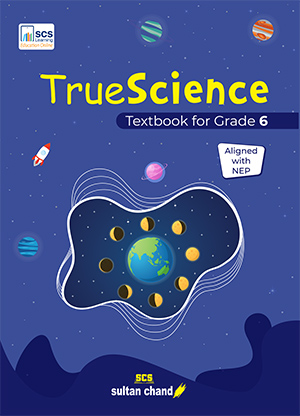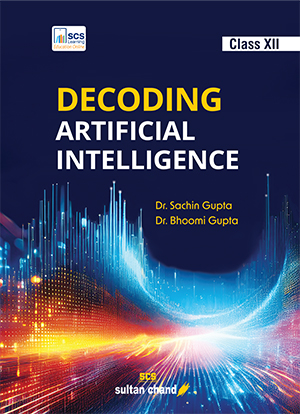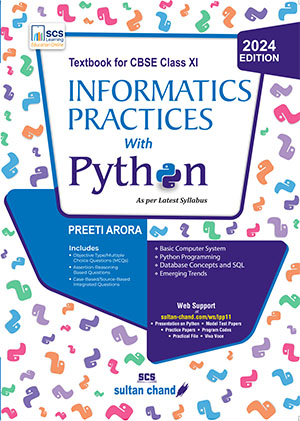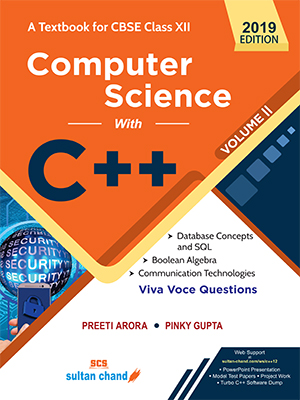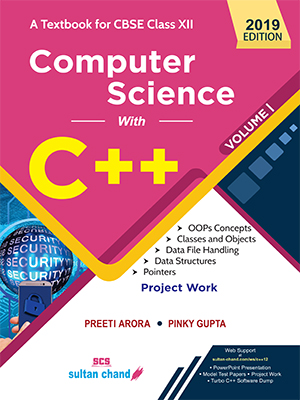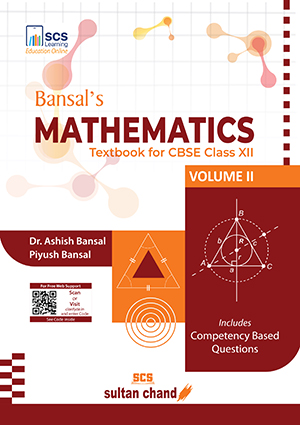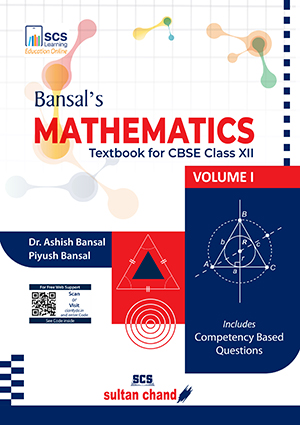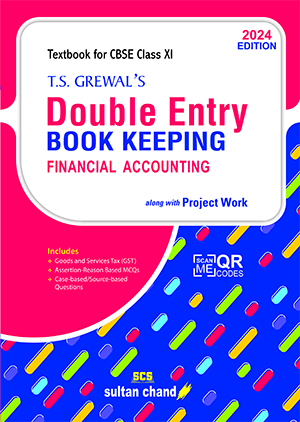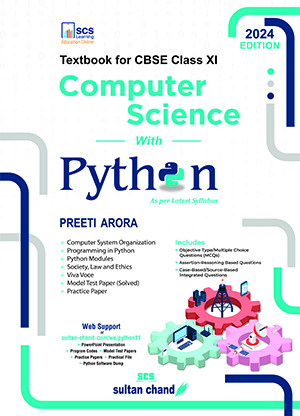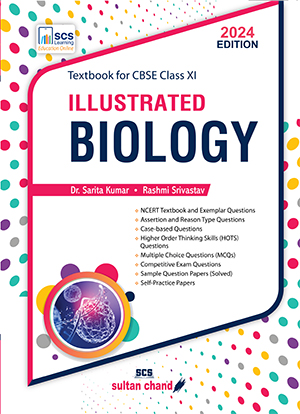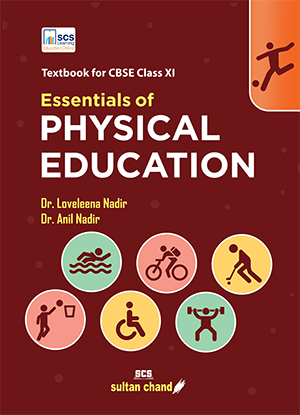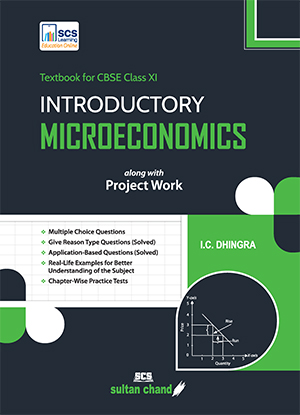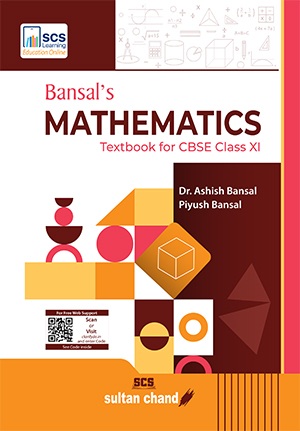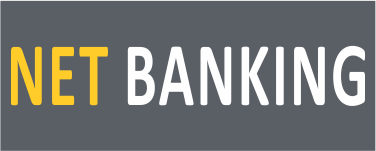Best Sellers
Computer Science with Python: Textbook for CBSE class 11(2024-25 Examination)
Computer Science with Python: Textbook for CBSE class 11(2024-25 Examination)
| Author:- | Preeti Arora |
| Board:- | CBSE |
| Class:- | 11 |
| Subject:- | Computer Science |
| Language:- | English |
| ISBN:- | 9788119446469 |
Book Detail
This book, Informatics Practices with Python for Class XI (065), has been prepared in accordance with the latest CBSE syllabus for the 2023-24 academic session. The book focuses on teaching Python language to help students learn programming concepts and develop problem-solving skills and RDBMS operations to better organize and implement efficient database systems. With easy-to-understand examples, self-explanatory diagrams and other such tools, the student learns to design the logic for a program and then implement that program using Python. Besides tested, debugged and error-free codes with screenshots, ample concise and practical example programs derived from real-life situations have been provided in the book. CTM (Commit to Memory), Learning Tips and Points to Remember for easy recall of important terms and concepts are other notable features of the book.
Strictly adhering to the CBSE curriculum and guidelines, the book has been divided into four units:
Unit I: Introduction to Computer System (Chapter 1)
Introduction to Computer and Computing: Evolution of Computing Devices;
Components of a Computer System and their Interconnections; Input/Output Devices; Concept of Computer Memory, Units of Memory, Types of Memory—Primary and Secondary; Data Deletion, its recovery and related Security Concerns; Software: purpose and types—System and Application Software, Generic and Specific-Purpose Software.
Unit II: Introduction to Python (Chapters 2 to 6)
Basics of Python Programming; Python Interpreter—Interactive and Script Mode; Structure of a program, Indentation; Process of writing a program, running it and print statements; Data Types; Data Type Conversion; Tokens—Keywords, Identifiers, Constants, Variables; Operators—Types of Operators, Precedence of Operators; Debugging; Conditional Statements, Looping Constructs, Operations and Functions in Lists and Dictionaries.
PREFACE
Unit III: Database Concepts and SQL (Chapters 7 & 8)
Introduction to Database concepts and the need for Database; Database Management System; Relational Data Model: Concept of Domain, Tuple, Attribute, Relation, Candidate key, Primary key, Alternate key; Advantages of using Structured Query Language, Data Definition Language, Data Query Language and Data Manipulation Language; Introduction to MySQL, Creating a Database using MySQL; Data Types; Data Definition: CREATE DATABASE, CREATE TABLE, DROP, ALTER; Data Query: SELECT, FROM, WHERE with Relational operators, BETWEEN, Logical operators, IS NULL, IS NOT NULL;
Data Manipulation: INSERT, DELETE, UPDATE.
Unit IV: Introduction to Emerging Trends (Chapter 9)
Artificial Intelligence; Machine Learning; Natural Language Processing; Immersive Experience (AR, VR); Robotics; Big Data and its characteristics; Internet of Things (IoT); Sensors; Smart Cities; Cloud Computing and Cloud Services (SaaS, IaaS, PaaS); Grid Computing and Blockchain Technology.
The book includes four appendices containing a Model Test Paper (Solved) based on the Board Sample Paper, a Practice Paper, ample Viva Voce questions and a brief description about NumPy library. Besides, Presentation on Python, Chapter-wise
Program Codes, Practical File, Model Test Papers, Practice Papers and Python Software Dump are available online and can be accessed at sultan-chand.com/ws/ipp11.
Pane 2 Content
and so on ...
-
No Review Yet.


